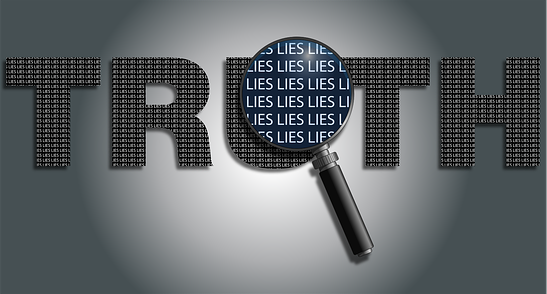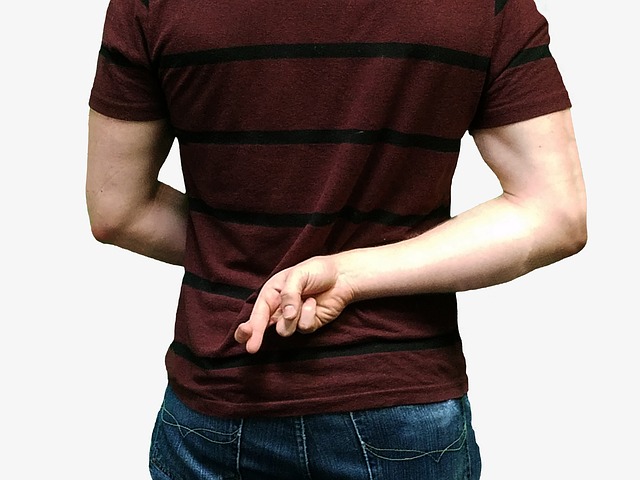
Is Truth Dead?
In a world where leaders spin reality and use alternative facts to make things seem better than they are, is dishonesty becoming the new norm? Or, as a Time Magazine cover asks, “Is Truth Dead?”
“Morality, like art, means drawing a line somewhere.” ~ Oscar Wilde
When leaders play loose with truth, they make it more comfortable for everyone to do the same thing. When we see successful people getting away with untruths, we start telling our own lies. We call them “our perspective.”
When there are no sanctions, why not? After the financial crisis of 2008, few leaders were punished; and many were let go with multi-million dollar compensation packages.
Dwindling confidence in what our leaders say has become the subject of late-night talk shows and comedy riffs. New terms for this abound: “alternate facts,” and “fake news.” This is of serious concern to anyone who seeks to make the world a better place.
It seems that power is often achieved by spinning the truth.
“Leaders are, by definition, people in positions of great power. And research consistently demonstrates that ‘powerful people lie more often and with more ease.’”
~ Jeffrey Pfeffer, Leadership BS, Fixing Workplaces and Careers One Truth at a Time, HarperBusiness, September 2015
Have we become blasé? Is being honest less important than achieving what we want? It’s time to look at ourselves as responsible for a truthful culture.
Everyone Does It
Most everyone engages in dishonest behaviors to some degree, sometimes for good reasons, and often not. Is it part of our human nature? We seem to tolerate a certain amount of “fudging.” In fact, we almost expect it to happen in business.
 Employees fudge expense and time reports, fake doctor’s appointments, and claim they’re ill when out doing something fun. We use our children as excuses for things, and some of us may even cheat on our taxes.
Employees fudge expense and time reports, fake doctor’s appointments, and claim they’re ill when out doing something fun. We use our children as excuses for things, and some of us may even cheat on our taxes.
In an effort to discover the truth about dishonesty, Duke Professor and best-selling author Dan Ariely reveals what social scientists have discovered.
In The (Honest) Truth About Dishonesty: How We Lie to Everyone – Especially Ourselves, Ariely asks:
- Is dishonesty restricted to a “few bad apples,” or is it widespread?
- What factors curb dishonesty?
- How do others influence us when it comes to right and wrong?
Ariely states that everyone engages in dishonesty, some in small ways, and some more than others. Most of it involves white lies and exaggerations, and most is perpetrated against faceless institutions. Typically, we convince ourselves it’s harmless and find good reasons to justify it.
A Simple Model of Rational Crime
Since we all have the potential to be somewhat criminal, it is crucially important that we first understand how dishonesty operates, and then figure out ways to contain and control it.
The prevailing notion of cheating, according to Nobel laureate Gary Becker of the University of Chicago, says that most people commit crimes based on a rational analysis of a situation.
In the Simple Model of Rational Crime (SMORC), he indicates that we seek our own advantage as we make our way through the world; we weigh the costs versus the benefits of an act (often without consideration of right or wrong), comparing the possible positive and negative outcomes of our actions.
However, this model is, imperfect and incomplete, as it does not say anything about moral conscious, self-image, or emotional irrationality, all key topics now being studied by behavioral economists.
The Fudge Factors
 There’s a delicate balance between the contradictory desires to maintain a positive self-image and to benefit from cheating. No one likes to think of him or herself as a cheat.
There’s a delicate balance between the contradictory desires to maintain a positive self-image and to benefit from cheating. No one likes to think of him or herself as a cheat.
Each of us has a limit to how much we can fudge before it feels sinful. This limit has to do with our self-image. How much can we stretch the truth before we feel guilty? Usually we allow a certain amount of flexibility before our self-image is affected.
According to research, people are more willing to steal something that does not explicitly reference monetary value. In other words, while we would steal paper and pencils at work, we will hesitate to take money from the cash box.
Some actions slide by our personal moral radar more easily, while others carry a big red flag. Think about the ways you might engage in “fudging.” What are the limits of your personal dishonesty radar?
How We Can Influence Honesty
The good news is that it isn’t complicated to get people to be honest. For example, the research show that simply being reminded of ethical standards encourages more honorable behavior. It has been found that people are less likely to steal or cheat when they’re asked to read the Ten Commandments first, even if they are atheists. Reading or signing an honor code or pledge also minimizes cheating.
People want to be honest – and they respond to moral reminders when put in situations that tempt dishonesty. But, without such reminders, many feel comfortable enough to rationalize their behaviors to obtain the desired outcomes by any means. Corporate Values that are explicit and reviewed often will tend to minimize the temptations, as long as they are truly lived by all, especially the leaders of the organization.
If one of your corporate values is Honesty (or some form thereof), but you instruct your assistant to tell the person on the phone that you are in a meeting when you are not, just so you can avoid the call, the message to your employees is clear – “It is OK to Fudge and Cheat in Our Organization.”
Additionally, the research shows that we are influenced to be more honest in the presence of others who might see or hear us being dishonest. Therefore, with regular core value reminders and with other people around, we are less comfortable with misbehaving and cheating. Our fudge factors shrink.
